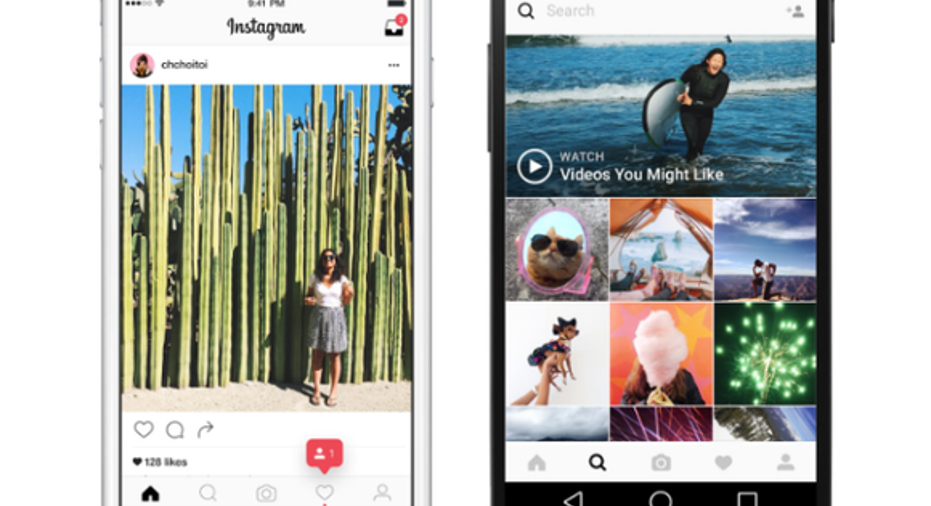Facebook Stock Is Up $100: Can It Power Higher?

Image Source: Facebook.
Facebook (NASDAQ: FB) is on an incredible run with shares up more than $87 per share from its 2012 IPO price. However, it hasn't always been so good for the founder-led social-media company. Early in Facebook's publicly traded life, a botched IPO and questions about the company's mobile monetization compounded to quickly drag the stock below its public-offering price.
In September of 2012, shares briefly traded below $18 per share as an earlier deal to buy Instagram for $1 billion in cash and stock added to bearishness. The deal, announced before Facebook's IPO, was widely criticized because Instagram had no revenue and was paid for by additional stock issuance. The only positive was Facebook's languishing stock price actually made the apparent foolhardy purchase roughly 25% cheaper.
In the four years since its dip below $18 in 2012, shares of Facebook are up more than $100 per share -- an incredible run of 600%. Here's what investors have to look forward to.
A continued shift to digital outlets
Facebook is in the driver's seat of the biggest shift in marketing since the creation of the television. According to eMarketer, due to the tremendous growth in U.S. mobile advertising, total digital advertising spend will surpass television spend for the first time. By 2020, the marketing analytics firm expects digital to command approximately 45% -- nearly half -- of all U.S. advertising dollars, with television's take at roughly one-third (32.9), the same figure as mobile advertising.
At this point, Facebook is the biggest beneficiary of an increase in mobile marketing. More eMarketer data (viaPew Research Center) found Facebook's share of total digital advertising revenue at 30% last year, up from 25% the year before. Facebook should continue to benefit from a shift away from television and other outlets, like print and radio, going forward.
He who laughs last...
It appears Zuckerberg will have the last laugh on the Instagram purchase. After being heavily frowned upon four years ago, the acquisition should start to show up in Facebook's financials in a major way. This year, the company announced it now has 500 monthly active users (MAU), more than Twitter's 313-million MAU figure. Where Twitter'sMAU figure has flatlined, however, Instagram's has continued to grow by adding 100 million users, or 25%, in 10 months.
Image Source: Instagram/Facebook.
During the last quarter, Zuckerberg announced the company had introduced its advertising tools on Instagram. Zuckerberg has always been cautious about the balance between user experience and monetization, but it now appears the company feels confident about shifting to more advertising. During the same conference call, CFO Dave Wehner cautioned about Facebook's ad load, but noted that Instagram's is smaller than Facebook's.
Facebook could be the leader in virtual reality
If the next big thing in tech really is virtual and augmented reality, then Facebook's in a good position. In 2014, the company paid $2 billion for Oculus VR, the maker of the Rift headset. There's currently a hidden battle for virtual and augmented reality, with Alphabet appointing a virtual-reality chief and announcing a virtual-reality operating system called Daydream, which will be released in the fall.
Apple's Tim Cook has stated that he's investing in augmented reality, as well, and even added, "I think AR can be huge." That said, Facebook currently appears to be in the lead for this technology, and will most likely continue to be a huge player in the space.
No investment is perfect, of course. There are a few nascent risks with Facebook that I outlined in a prior article. But even after an incredible four-year run that has seen its stock increase more than $100 per share, the company appears to have further room to power higher.
A secret billion-dollar stock opportunity The world's biggest tech company forgot to show you something, but a few Wall Street analysts and the Fool didn't miss a beat: There's a small company that's powering their brand-new gadgets and the coming revolution in technology. And we think its stock price has nearly unlimited room to run for early in-the-know investors! To be one of them, just click here.
Suzanne Frey, an executive at Alphabet, is a member of The Motley Fools board of directors. Jamal Carnette owns shares of Alphabet (C shares), Apple, and Facebook. The Motley Fool owns shares of and recommends Alphabet (A shares), Alphabet (C shares), Apple, Facebook, and Twitter. The Motley Fool has the following options: long January 2018 $90 calls on Apple and short January 2018 $95 calls on Apple. Try any of our Foolish newsletter services free for 30 days. We Fools may not all hold the same opinions, but we all believe that considering a diverse range of insights makes us better investors. The Motley Fool has a disclosure policy.



















